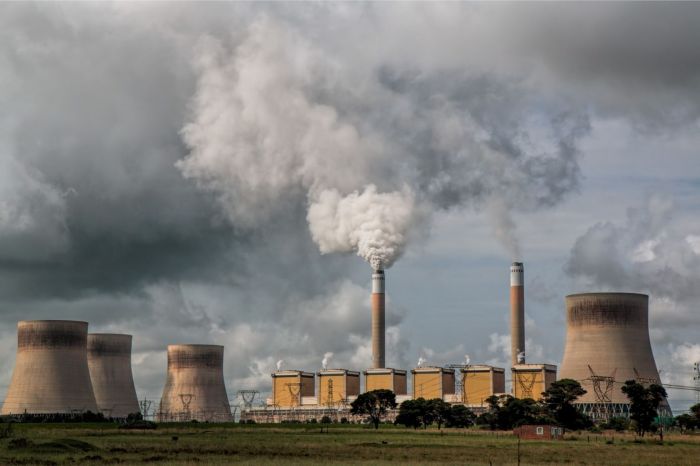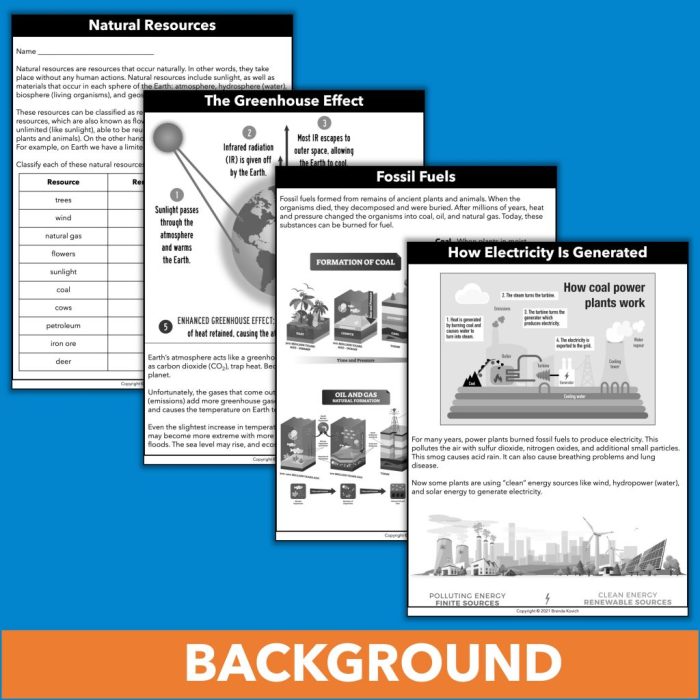Fossil fuels and humans quiz: Embark on a captivating journey into the intricate relationship between fossil fuels and human civilization, exploring their profound impact on our planet and society.
Fossil fuels have fueled human progress for centuries, shaping economies, powering industries, and transforming our daily lives. Yet, their extraction and consumption come with significant environmental and social consequences. This quiz delves into the multifaceted world of fossil fuels, examining their advantages, disadvantages, and the urgent need for alternative energy sources.
Fossil Fuels and Their Impact on Humans

Fossil fuels, such as coal, oil, and natural gas, have played a pivotal role in shaping human civilization. They have provided us with energy to power our homes, industries, and transportation systems. However, the use of fossil fuels has also had significant consequences for the environment and human health.
Types of Fossil Fuels and Their Sources
Fossil fuels are formed from the remains of ancient plants and animals that have been buried and subjected to heat and pressure over millions of years. The different types of fossil fuels include:
- Coal: Coal is a solid fossil fuel that is formed from the remains of ancient forests. It is primarily composed of carbon, hydrogen, and oxygen.
- Oil: Oil is a liquid fossil fuel that is formed from the remains of ancient marine organisms. It is primarily composed of hydrocarbons.
- Natural Gas: Natural gas is a gaseous fossil fuel that is formed from the remains of ancient plants and animals. It is primarily composed of methane.
The Environmental Impact of Fossil Fuels

Fossil fuel consumption has severe environmental consequences, impacting air, water, and the climate. Its combustion releases pollutants that degrade ecosystems and pose health risks to humans.
Air Pollution
Fossil fuel combustion emits harmful gases like carbon dioxide (CO2), sulfur dioxide (SO2), and nitrogen oxides (NOx). These gases contribute to smog, acid rain, and respiratory problems such as asthma and bronchitis.
Water Pollution
Fossil fuel extraction and processing contaminate water sources. Coal mining, for instance, releases heavy metals and chemicals into groundwater and surface water, harming aquatic life and human health.
Climate Change
Fossil fuels are a major source of greenhouse gases, particularly CO2. The accumulation of these gases in the atmosphere traps heat, leading to global warming and climate change. The effects include rising sea levels, extreme weather events, and altered ecosystems.
Ecosystem Impacts
Fossil fuel extraction and combustion disrupt natural habitats. Coal mining destroys forests, while oil spills damage marine ecosystems. The release of pollutants can also harm wildlife, affecting biodiversity and ecological balance.
Human Health Impacts
Air pollution from fossil fuels can cause respiratory illnesses, cardiovascular disease, and cancer. The burning of fossil fuels also releases particulate matter, which can penetrate deep into the lungs and cause health problems.
The Social and Economic Impact of Fossil Fuels: Fossil Fuels And Humans Quiz
Fossil fuels have had a profound impact on human society and economies. Their discovery and utilization have transformed the way we live, work, and interact with the environment. However, their continued use also poses significant social and economic challenges.
Social Benefits of Fossil Fuels
- Improved living standards: Fossil fuels have enabled the development of modern conveniences such as electricity, heating, transportation, and manufacturing, leading to improved living standards and quality of life.
- Job creation: The fossil fuel industry employs millions of people worldwide, creating jobs in extraction, transportation, refining, and distribution.
- Energy security: Fossil fuels provide a reliable and relatively inexpensive source of energy, ensuring a steady supply for homes, businesses, and industries.
Economic Benefits of Fossil Fuels
- Economic growth: Fossil fuels have fueled economic growth and development by providing energy for industrialization, transportation, and agriculture.
- Government revenue: Fossil fuel production and consumption generate substantial tax revenue for governments, which can be used to fund public services and infrastructure.
- Global trade: Fossil fuels are traded globally, creating economic interdependence between countries and fostering international cooperation.
Political Landscapes and Dependency Risks
Fossil fuels have also shaped global political landscapes. Countries with abundant fossil fuel resources have gained economic and political power, while those without have faced challenges in securing energy supplies.
However, over-reliance on fossil fuels can lead to economic risks, such as price volatility, resource depletion, and geopolitical instability. It can also hinder the development of renewable energy sources and contribute to climate change.
Alternative Energy Sources

Fossil fuels have been the primary source of energy for centuries, but their finite nature and environmental impact have led to the exploration of alternative energy sources. These sources offer a sustainable and environmentally friendly alternative to fossil fuels, with the potential to reduce greenhouse gas emissions and mitigate climate change.
Hey there, fossil fuels and humans enthusiasts! While testing your knowledge on the subject is great, don’t forget that most skids are caused by overuse of brakes . So, keep your quizzing in check and your driving skills sharp. Back to fossil fuels and humans, shall we?
Alternative energy sources encompass a diverse range of technologies that harness natural resources such as sunlight, wind, water, and geothermal heat to generate electricity, heat, and transportation fuels.
Types of Alternative Energy Sources
- Solar Energy:Converts sunlight into electricity using photovoltaic cells or concentrated solar power systems.
- Wind Energy:Harnesses the kinetic energy of wind to generate electricity using wind turbines.
- Hydropower:Utilizes the energy of flowing water to generate electricity through dams and turbines.
- Geothermal Energy:Extracts heat from the Earth’s core to generate electricity or heat buildings.
- Biomass Energy:Converts organic matter, such as plants and waste, into energy through combustion or anaerobic digestion.
Advantages and Disadvantages of Alternative Energy Sources
Alternative energy sources offer several advantages over fossil fuels:
- Renewable:Most alternative energy sources are derived from renewable resources, ensuring a sustainable supply.
- Clean:They produce minimal greenhouse gases and pollutants, reducing environmental impact.
- Diversification:Alternative energy sources can diversify energy production, reducing dependence on a single source.
However, they also have some disadvantages:
- Intermittency:Solar and wind energy are intermittent, meaning they are not always available when needed.
- High Cost:The initial investment in alternative energy technologies can be higher than for fossil fuels.
- Land Use:Large-scale renewable energy projects may require significant land use.
Potential for Replacing Fossil Fuels
The potential for alternative energy sources to replace fossil fuels in the future is significant. Technological advancements and cost reductions are making renewable energy more competitive with fossil fuels. Governments worldwide are implementing policies and incentives to promote the adoption of alternative energy.
As the demand for sustainable energy solutions continues to grow, alternative energy sources are expected to play an increasingly important role in meeting global energy needs.
The Future of Fossil Fuels

The future of fossil fuels is uncertain. While they have been the dominant source of energy for over a century, their use is declining due to concerns about climate change and the availability of renewable energy sources.
Current Trends, Fossil fuels and humans quiz
Global fossil fuel consumption has been increasing steadily for decades, but the rate of growth has slowed in recent years. This is due in part to the increasing use of renewable energy sources, such as solar and wind power. Additionally, the cost of renewable energy has been declining, making it more competitive with fossil fuels.
Potential for Fossil Fuels
Despite the declining growth rate, fossil fuels are expected to remain a major source of energy for the foreseeable future. This is because they are relatively inexpensive and easy to transport. Additionally, there are large reserves of fossil fuels that have yet to be exploited.
Challenges and Opportunities
The transition to a low-carbon economy will be challenging. It will require significant investment in renewable energy sources and infrastructure. Additionally, it will be necessary to address the social and economic impacts of the transition, such as job losses in the fossil fuel industry.
However, the transition to a low-carbon economy also presents opportunities. It will create new jobs in the renewable energy sector and lead to a cleaner and healthier environment.
Helpful Answers
What are the primary types of fossil fuels?
Fossil fuels include coal, natural gas, and oil.
How do fossil fuels contribute to air pollution?
Fossil fuel combustion releases harmful pollutants such as carbon dioxide, sulfur dioxide, and nitrogen oxides, contributing to smog and respiratory issues.
What are the potential risks of fossil fuel dependency?
Overreliance on fossil fuels can lead to energy security concerns, price volatility, and geopolitical tensions.
What are the advantages of renewable energy sources over fossil fuels?
Renewable energy sources are generally cleaner, more sustainable, and have the potential to reduce greenhouse gas emissions.